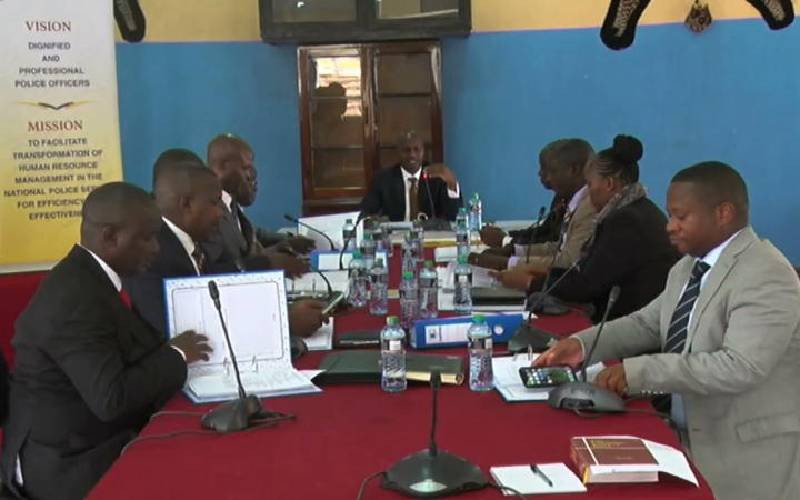×
The Standard e-Paper
Fearless, Trusted News

Last week, the "Maraga Taskforce on Police and Prison Welfare and Reforms" released its much-anticipated report to President William Ruto.
The report identified specific issues such as political interference in the National Police Service (NPS), corruption in employment and promotions, police training curriculum, an inadequate National Police Service Commission (NPSC), the role of the Cabinet Secretary responsible for National Security and structure of the Internal Affairs Unit (IAU) in the police.